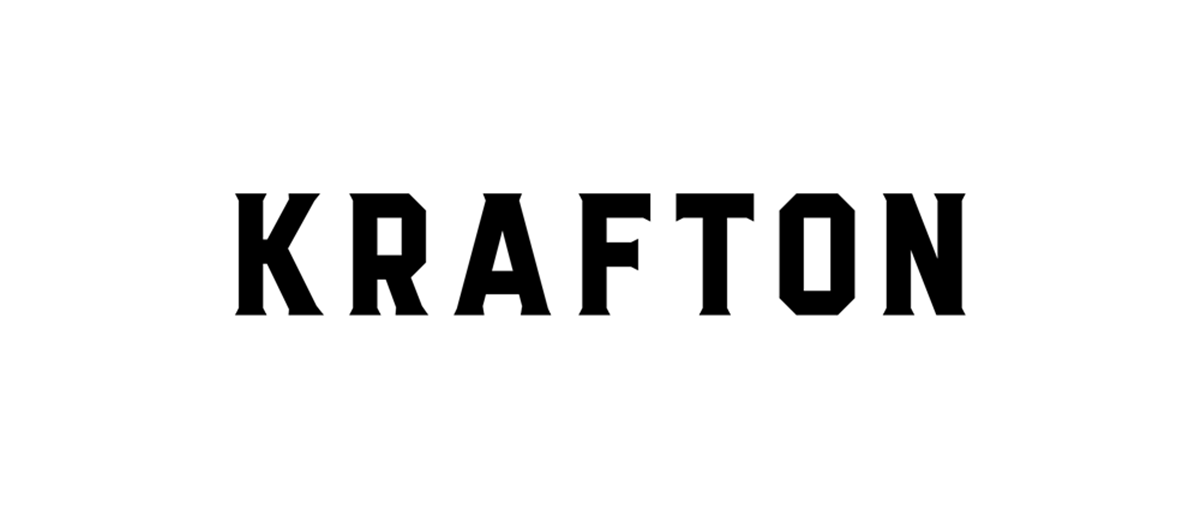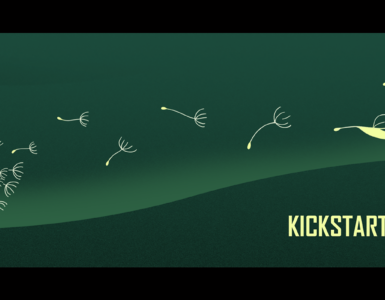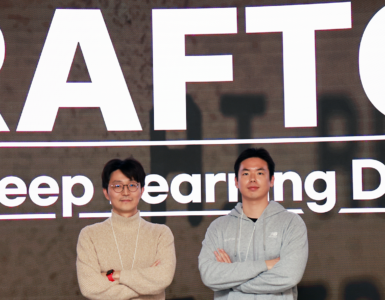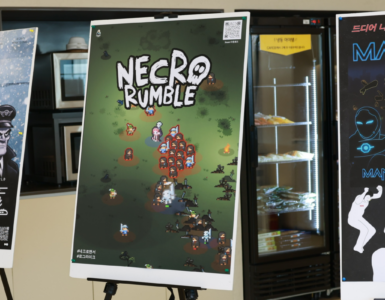Jungle is a software program run by KRAFTON to foster talented software developers based on self-directed learning and immersion. The second round of the Jungle program is currently ongoing, and the application for the third round will start on July 10. We met with Sunwoo Lee, who is currently employed as a developer at Dreamotion after graduating from the first round of KRAFTON Jungle, as our second interviewee. (Link to Part 1) He says that a good developer is someone who can think for himself, understand the essence of the task at hand, find the optimal method, and implement it. We asked Sunwoo, who said that the KRAFTON Jungle program could be a turning point in life, about his time in the program.

Hello. Please introduce yourself to the KRAFTON blog readers.
Hello, I’m Sunwoo Lee, and I graduated from the first cohort of KRAFTON Jungle. I’m currently developing games as a client programmer at Dreamotion, a subsidiary of KRAFTON.
It’s been a while since you graduated, but how do you feel about becoming a first cohort graduate of KRAFTON Jungle?
Having worked hard for five months, I felt incredibly proud and liberated when I reached the goal. I thought that my experience in Jungle would be of great help to me when I face challenges in my life, and I also gained the courage to confidently take on whatever I do.
Looking back on the past three months after graduating from Jungle, I don’t think there has been a time as enjoyable and happy as when I was in Jungle. I started to understand more about what constitutes a good environment for immersion, and sometimes I find myself missing the time in Jungle when all I had to do was study (laughs).

What made you apply for KRAFTON Jungle?
My application for KRAFTON Jungle was somewhat coincidental. When I was in college, I took a semester off and had time to seriously think about what I really wanted to do. Loving games, I decided to try game development after long contemplation, so I spent a year creating a game and eventually released it on Steam. I had so much fun during the year and I wanted to do more, but as someone without a programming background, I felt that I lacked a lot of knowledge about development. One day, I saw a video on YouTube that KRAFTON is kicking off a new program called Jungle, and after checking the curriculum, I applied immediately.
What have you been doing since completing the course?
Currently, I’m developing a new game as a client programmer at a company called Dreamotion. My primary job since I joined the company has been developing a new game, especially the content within it. Every day is enjoyable, because I’m working on a new game that all game developers would love to participate.
What made you decide to work for the current company?
I was drawn to Dreamotion because I recognized their love for the game in their previous works. Also, I was attracted to Dreamotion because their next game was a narrative game, which is rarely made by Korean producers, and it would be able for me to join their new journey to uncharted territories with them. I enjoy narrative-driven games and play them a lot, so their new game piqued my interest. Also, I was moved by the company’s atmosphere and the people’s passion for the game after the interview, which led me to decide to join.
In what ways did KRAFTON Jungle help you in your job-seeking process?
Rather than any particular knowledge I gained in Jungle, the experience of complete immersion helped me the most. I don’t think companies put great emphasis on background knowledge when they hire new developers. Technologies/stacks required, work styles, and people vary from company to company, and finding a perfect candidate that satisfies every condition is near impossible.
Even if such a person exists, he or she may not fit the company culture. Hence, I believe that the vast amount of studying I did and the assignments I completed within a short time of five months during the Jungle program gave me a big plus during the interview. I believe my experience in Jungle left an impression that I could adapt quickly and persistently solve difficult problems.

What was your biggest expectation for Jungle? Did you have any goals?
I had two main expectations from the Jungle program.
First, I wanted to learn CS (Computer Science) to understand the basics of development. I faced challenges during the year that I developed my own game due to a lack of knowledge about data structures, which led me to waste time in implementation and write inefficient codes that significantly slowed down the game.
Second, I looked forward to meeting new people. I studied business when I was in college, so I didn’t have many developers around me. Worse, I didn’t have any game developers around me, so I had to rely on the internet to develop games. I had no one around me with whom I could talk about game development, which was a bit frustrating. That’s another reason I applied to Jungle, looking forward to new encounters.
Any particular part of the curriculum that was exceptionally demanding or memorable?
Since everything I learned in Jungle was new, there wasn’t anything specifically challenging, and the entire curriculum was difficult. However, I felt that all the subjects were building up step by step from the beginning, and it was interesting and impressive to be able to apply what I had learned before to the next step.
What was your proudest moment during the course?
I remember a project called PintOS, where we had to fill in some essential elements missing in an actual computer operating system. It was a moment when I could understand the internal structure of the computer that I used without much thought before, and the project was very difficult. The code base consisted of hundreds of code lines and tens of files, and the project required knowledge about how a computer works, so I couldn’t successfully complete the project. Still, I took on the challenge, and I was incredibly proud that I was able to successfully complete at least several assignments.

Can you share more about the final project, ‘SPACE HASTE’?
‘SPACE HASTE’ is a space racing game where, unlike typical racing games where you drive cars, you have to race by controlling a spaceship in a zero-gravity environment.

What was your role in this project?
I was a project leader, and I volunteered for it, because I didn’t want to give up on my dream and wanted to pursue my passion for game-making. I brought my experience as a team leader in college projects into this role, and while I believe there are things that I did well, I also regret some situations where my shortcomings put my team members through difficulties.
What does this project mean to you?
Although the game still has room for improvement due to its short development period, I’m actually very proud and pleased with it. Considering it was created in just 2-3 weeks, the level of completion didn’t fall short of other projects, and I take pride in it because I dedicated every available second of my time to making this game without any regrets. If the previous game, which I spent a full year carefully refining and orchestrating, was proof that I can develop games, I consider this project, which I developed within a short period with full dedication and immersion, as further evidence of my capabilities and passion for game development.
It seems like you’ve always been interested in game development. Is there a reason for this?
I’ve always loved games since I was young. I never thought about making games, but I enjoyed everything labeled as ‘game,’ from console and PC games to board and card games. Then, after playing the Starcraft 2: Wings of Liberty campaign, I was deeply impressed by the immersive gameplay, touching stories, engaging universe, excellent graphics and cinematics, and realized that this ‘work of art’ was created through the efforts of many people.
Amidst this admiration for the game as a work of art, I had a chance to take a break from college and contemplate what I really want to do in the future, and realized that I want to participate in creating a piece of art that can resonate in someone’s heart, which was why I started developing games. Of many fields, I chose programming because, after a year of creating a game, I found that the area I was most competent in and enjoyed learning was programming.

What is the most valuable thing you learned through Jungle?
When I look back at my time at Jungle, I believe the most valuable assets I’ve acquired are undoubtedly the people I met there. The precious connections made during the Jungle project will be my lifelong treasures.
What do you think constitutes a good developer?
I believe great developers are those who can think for themselves. They understand the essence of a given task, recognize the intention behind it, ponder the optimal solution, and successfully implement it. Great developers not only follow given or known methods but also try various ways to come up with the best solution.
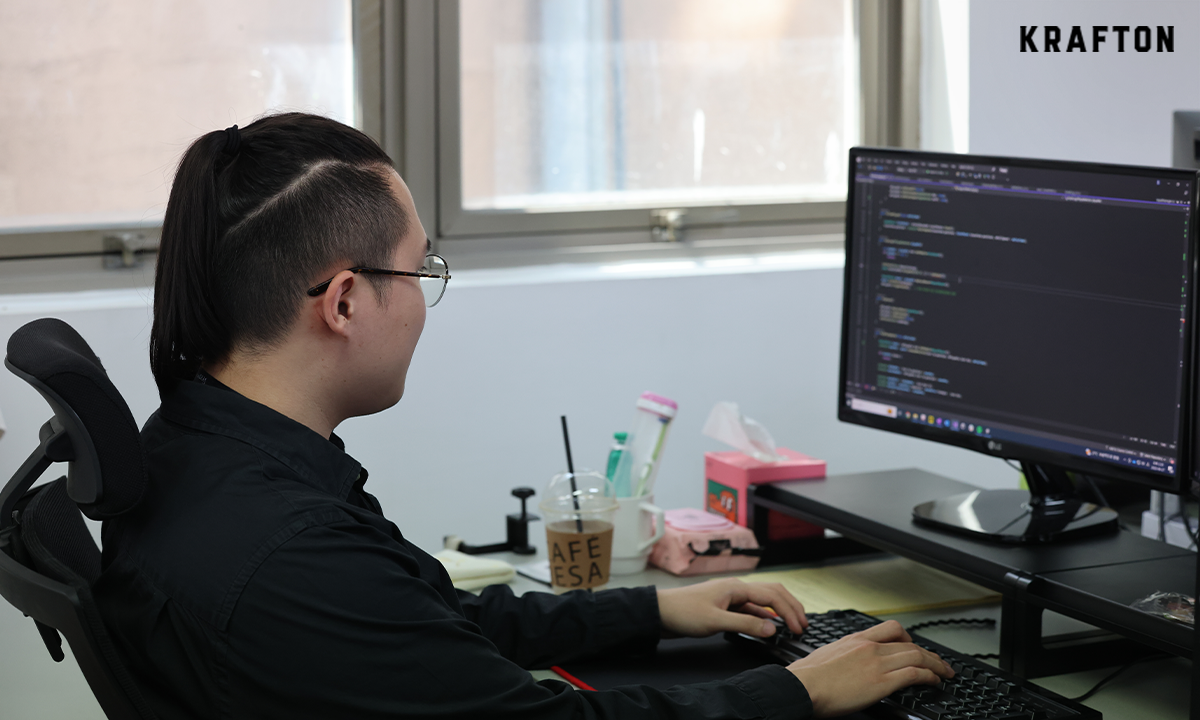
Do you have any comments for those who think about applying for Jungle?
KRAFTON Jungle can be a life-changing opportunity for some, or just 5 months passing by for others. Don’t assume you will grow by simply finishing the Jungle program, but instead deliver 120% of results at every moment to not just survive, but to grow in Jungle. Keep in mind that, if you are dreaming of a career transition to a developer, Jungle can give you the opportunity, but it’s you who should seize the opportunity.
Do you have any last comments for this interview?
For me, Jungle was a turning point in my life and an experience that I will always cherish for the rest of my life. I deeply appreciate the Jungle staff members who helped me have this experience, my colleagues who sailed through the storm and had fun together, and everyone who supported the journey of Jungle.
